Aditi Shah's Journey to Better Sleep Involves a $3,000, AI-Powered Mattress Topper
And daily meditation.
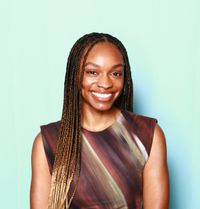
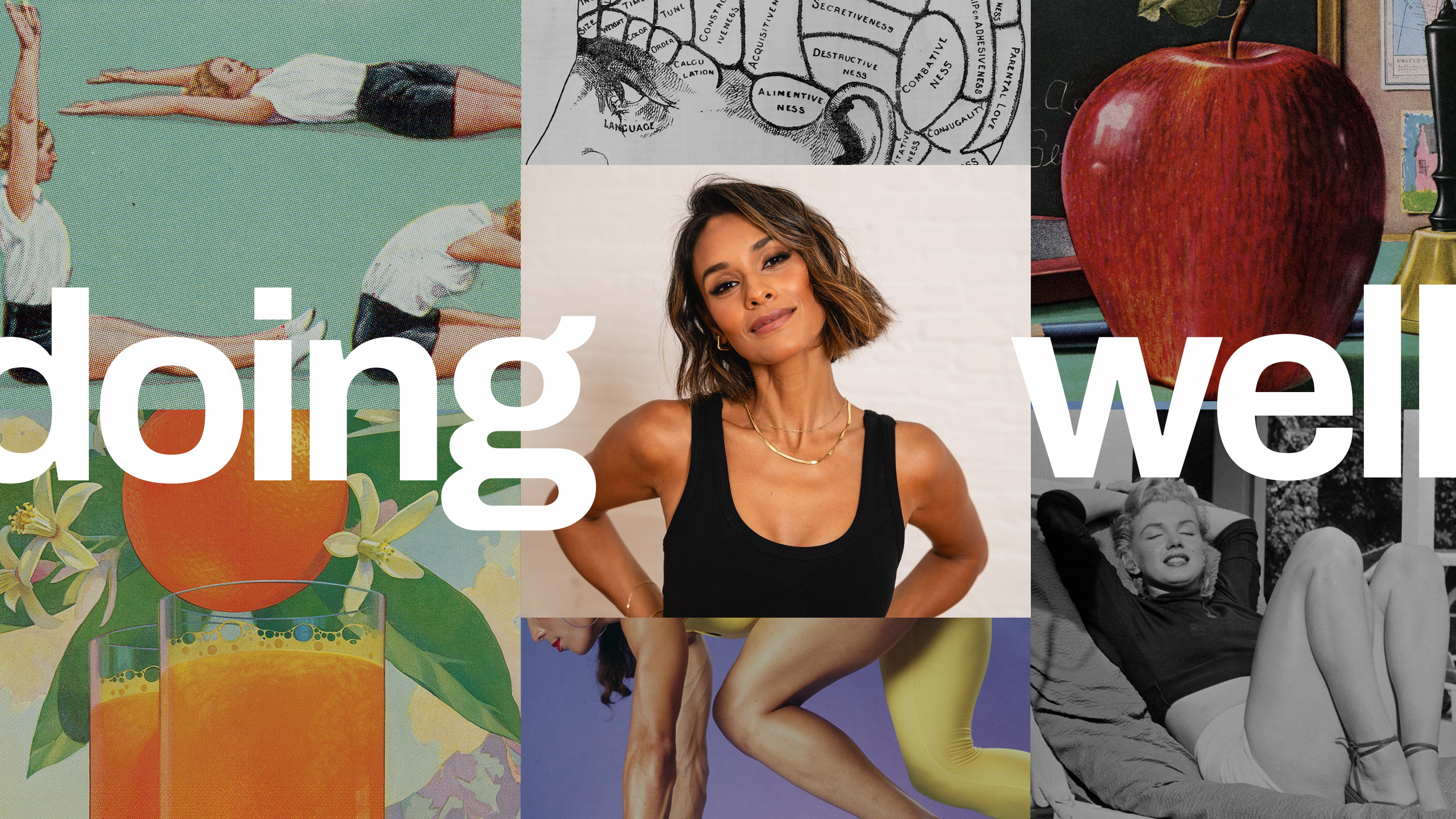
Select the newsletters you’d like to receive. Then, add your email to sign up.
You are now subscribed
Your newsletter sign-up was successful
Want to add more newsletters?

Delivered daily
Marie Claire Daily
Get exclusive access to fashion and beauty trends, hot-off-the-press celebrity news, and more.

Sent weekly on Saturday
Marie Claire Self Checkout
Exclusive access to expert shopping and styling advice from Nikki Ogunnaike, Marie Claire's editor-in-chief.

Once a week
Maire Claire Face Forward
Insider tips and recommendations for skin, hair, makeup, nails and more from Hannah Baxter, Marie Claire's beauty director.

Once a week
Livingetc
Your shortcut to the now and the next in contemporary home decoration, from designing a fashion-forward kitchen to decoding color schemes, and the latest interiors trends.

Delivered Daily
Homes & Gardens
The ultimate interior design resource from the world's leading experts - discover inspiring decorating ideas, color scheming know-how, garden inspiration and shopping expertise.
There’s no right way to “do” wellness, but Marie Claire’s Doing Well offers a glimpse into the self-care mantras, therapies, and affirmations practiced by industry trailblazers.
Aditi Shah thinks we should all get more sleep—and I'm inclined to agree, given the fact that I can’t even remember the last time I’ve had a good night’s rest. But her idea of adequate sleep isn't just making sure you get your full eight hours a night. During our 30-minute phone conversation, the 34-year-old Peloton yoga instructor detailed all the ways she's strengthened her commitment to being well-rested, including (but certainly not limited to) sleeping on an AI-powered mattress topper that regulates her body temperature overnight and avoiding screen time for at least an hour before officially turning in for the night.
As a person whose career relies on movement and physical activity, sleep is important, but it's obviously not the only feel-good practice she swears by. Shah is a huge advocate for therapy (mental and physical), she prioritizes gut health, hydration, and overall nutrition over any buzzy wellness trends, and she's incorporated meditation and other Ayurvedic practices into her daily routine as a way to connect with herself on a deeper level.
As we chatted, Shah gave me all of her candid thoughts about wellness, from why she's not a fan of juice cleanses to why therapy is one of the best investments in your health you can make. Keep reading to find out how she's Doing Well on a daily.
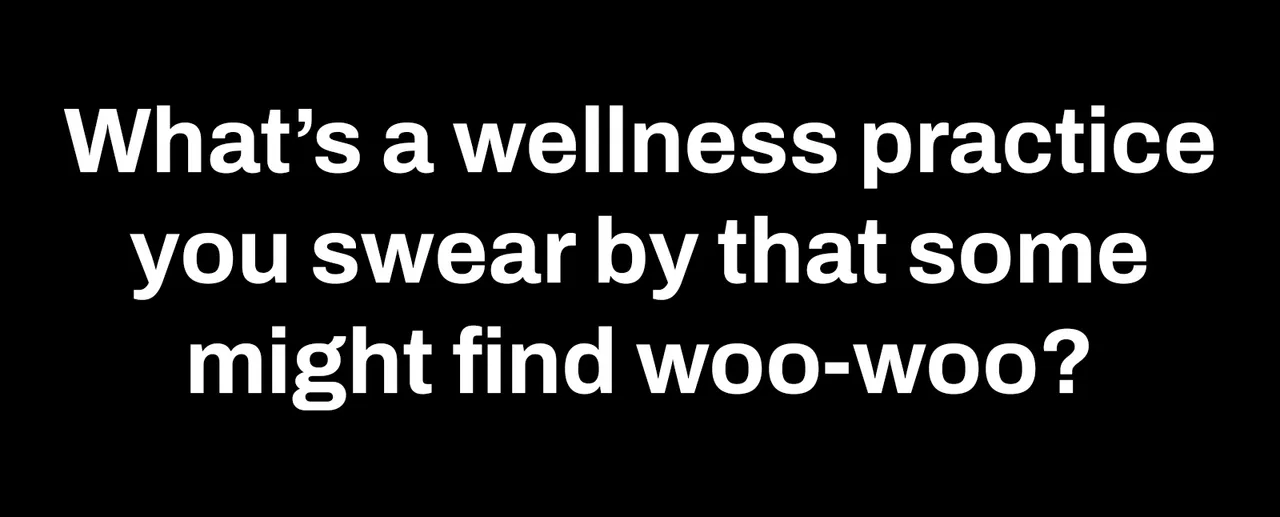
Well, I am a yoga and meditation teacher at Peloton, so I feel like this is my whole life. Things like Ayurveda—fennel seeds in water for better digestion, magnesium oil on the soles of your feet before bed, or meditation, which is part of what I do every day all the time—all of these things, I feel like, aren't always widely accepted. But I'll say so many of the practices I grew up with have been sort of redeemed in that they have now come around and become really popularized.
I grew up having to have turmeric and hot milk anytime I was sick, and I used to hate it, and now it's like a whole thing. I feel like sometimes our lived experiences have more wisdom than what we know, and a lot of the things that I do are kind of in that category.
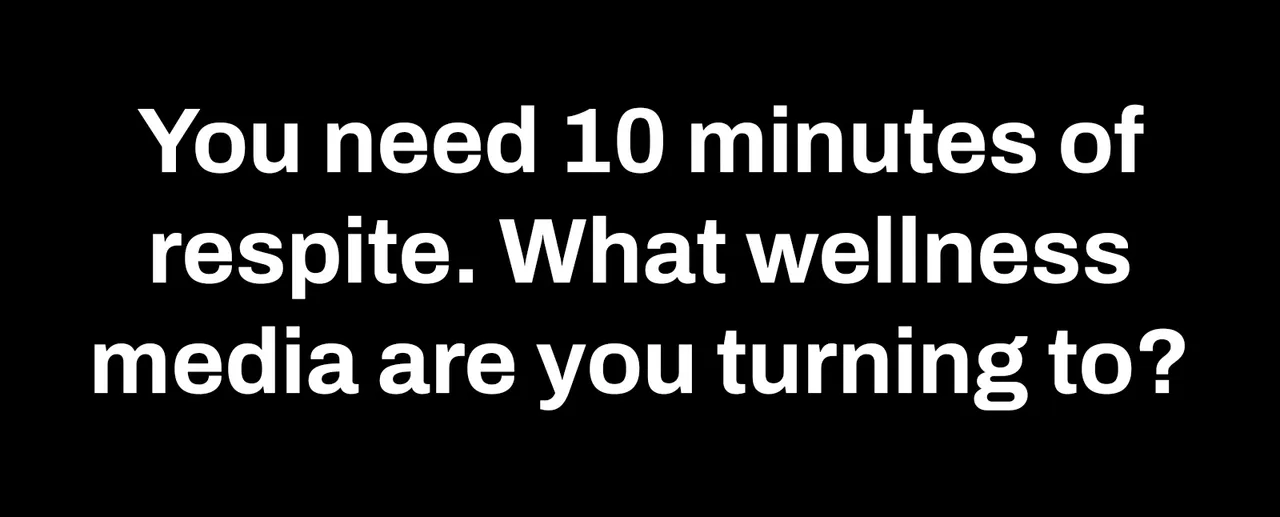
So, I might be biased, but Peloton. I think Peloton has so many great options, and I think there's something to be said for consistently spending time with the same person, whether it's virtually or IRL. With Peloton meditations, I'm actually listening to my friends's voices, which is really helpful in reframing or refreshing my day because it feels like it's a person that I know that I trust, and that I know where their heart is at. And then I'm sort of listening to their meditation and their point of view in a way that I might not hear in our normal conversations. I feel very lucky to have that.
Get exclusive access to fashion and beauty trends, hot-off-the-press celebrity news, and more.
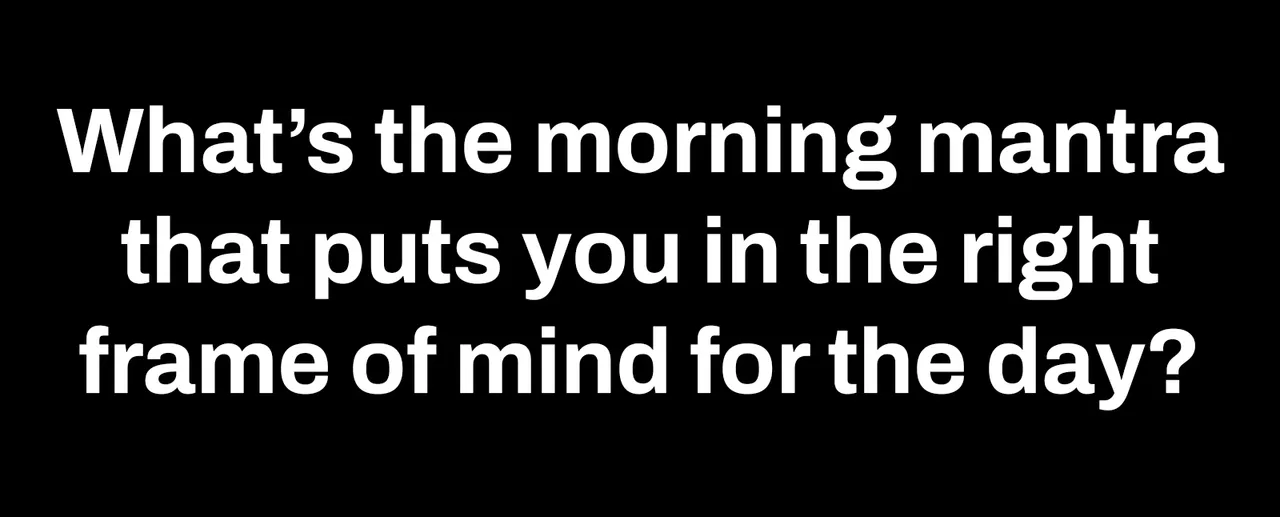
I'm a big meditation person and a big journaling person, so every Sunday, I create internal focuses or goals or what I'm thinking about: how I want to relate to myself, what I want to prioritize internally and externally—simple things. And sometimes that turns into a sort of mantra for the week, but the one that I would say I am more connected to that I do all the time is metta, which is actually a kind of meditation. It's a loving kindness meditation. In this practice, specifically, you repeat traditional phrases, but I really appreciate this because it's the kind of practice that allows you to have improvement and change over time. The consistency is going to help you change how you relate to yourself in the world.
The phrases that are repeated are, "May I be safe, may I be happy, may I be healthy, and may I live with ease." You can add specificity to it, but you take these phrases and direct them towards yourself first ("May I be safe"), and then to others ("May you be safe"), and then eventually, to all beings ("May we all be safe"). It sounds like it's focused a hundred percent on myself, but the practice of connecting to and caring for ourselves really helps us to create this inner reservoir.
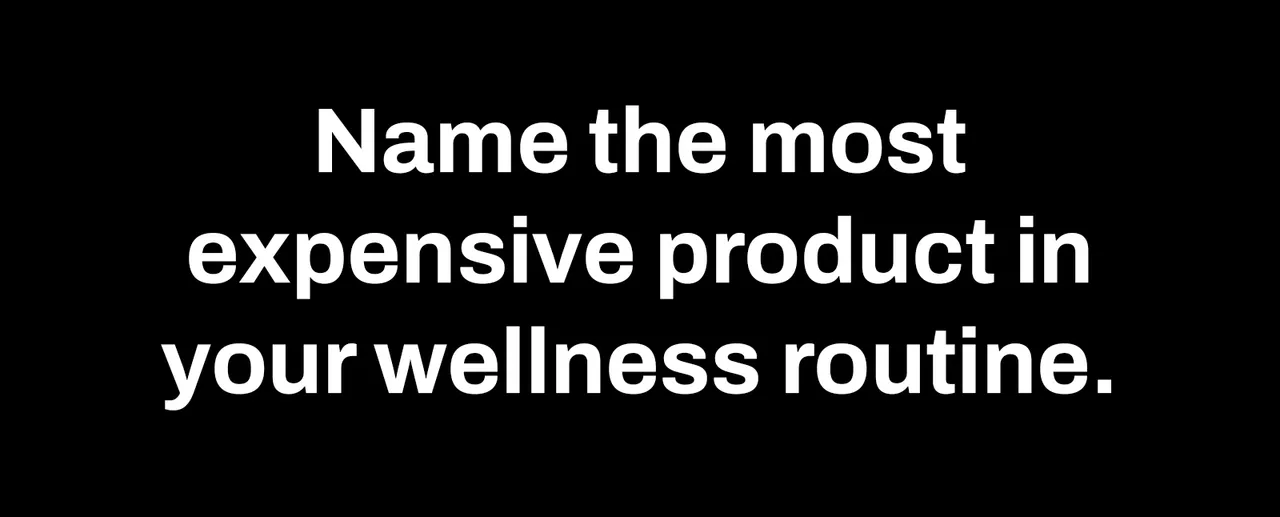
First of all, I think that long-term investments in your health, like therapy and physical therapy, end up being expensive because I do them for years, but they're worth every penny because, at the end of the day, wellness or health or mental health is not a one-time, check-the-box thing. It's an ongoing practice. If I were to go into products that anybody could buy, it'd be all of the sleep things—I love a good night's sleep!
I have a Tempur-Pedic mattress that has sleep tracking in it. It moves up and down and it has all of the features that you could need to sleep. On top of that, I have an Eight Sleep pod cover—it's like a mattress topper and also a blanket that's temperature-controlled and has AI technology in it to adjust the temperature for you. When you're in REM sleep, you're not really in charge of your body, including temperature regulation. So a lot of people have things like night sweats, especially for women going through hormonal changes. Your body temperature sometimes fluctuates and your body isn't regulating your temperature. So the Eight Sleep does it for you so that you're in the temperature pattern that's going to allow you to get the best quality sleep, which I think is incredible and has genuinely helped me. And I also really love my Hatch alarm clock because it's like a light alarm clock.
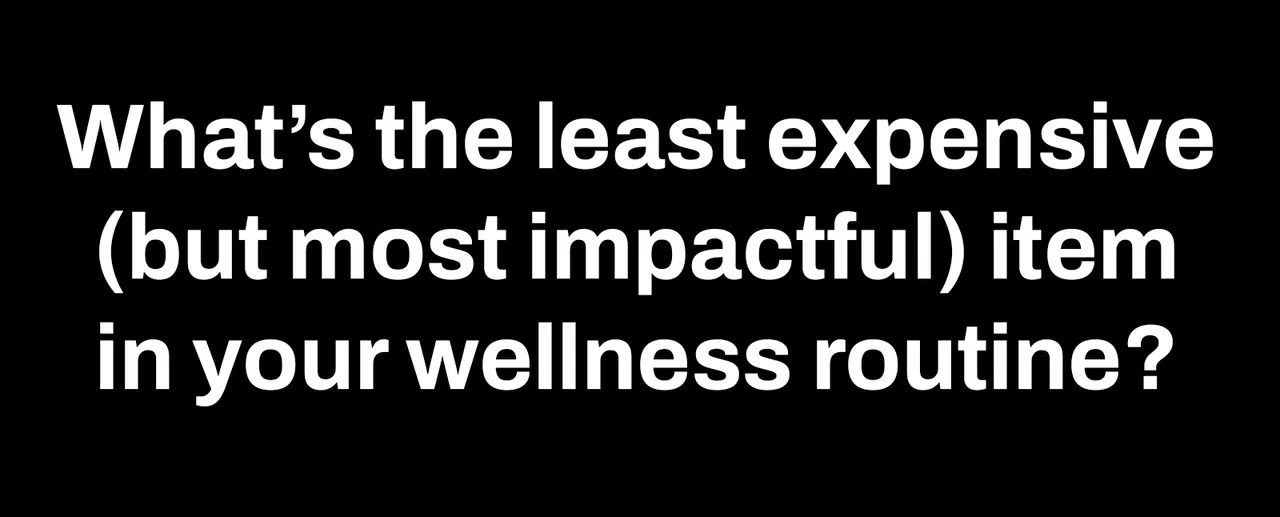
I always try to take a walk after dinner. I try to get quality sleep. I meditate every day. I love hot water to help with digestion or hot water with fennel or hot water with lemon. And hydration. All these things are free things that are going to have so much impact on my health.
One of the products or devices that I think feels like a really good ritual to me and is not wildly expensive is dry brushing. It actually really helps to activate your lymphatic system. I feel like it actually kind of wakes up my skin and it's good for my skin, but you really just need one dry brush and you can use it for a long time.
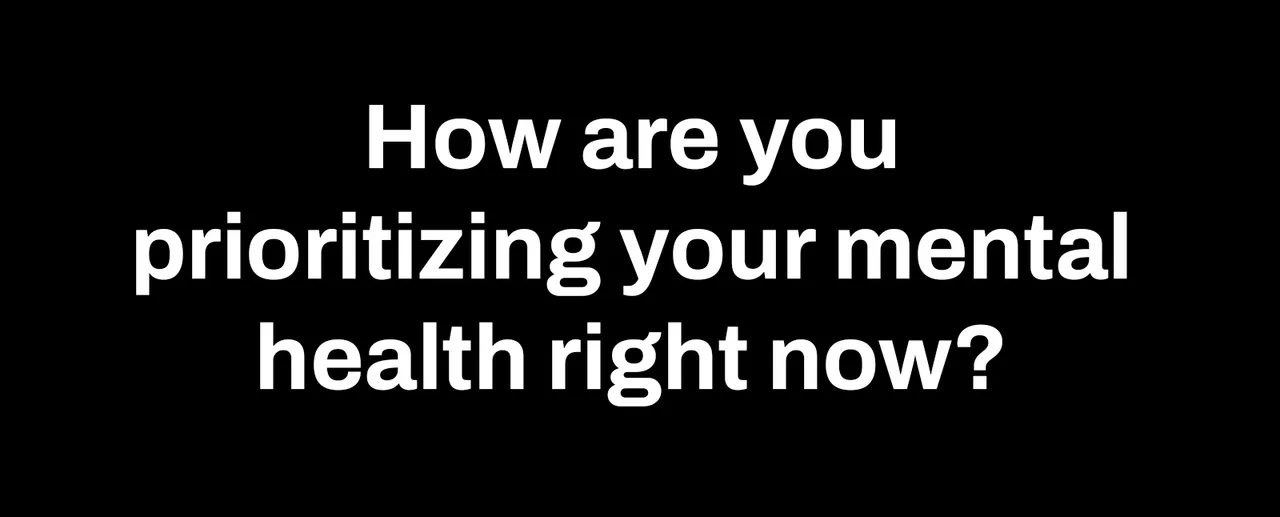
I strongly believe that mental health is a long game and the best time to fix the roof is not when it's raining. So I really try to have some of these practices all of the time, even if I do feel well and I know it's really easy to drop off. It's a lot easier to hone into your practice when you feel good than when it feels really intense, so maintaining a meditation and journaling practice is a huge part of me prioritizing my mental health even when I'm feeling great.
My life is very, very busy, so going back to sleep is another way I prioritize myself. Definitely. I think good sleep lifts all the ships in your harbor. And practicing saying no. There is so much to do in New York, which is such a gift, but so is really being able to prioritize what matters to you.
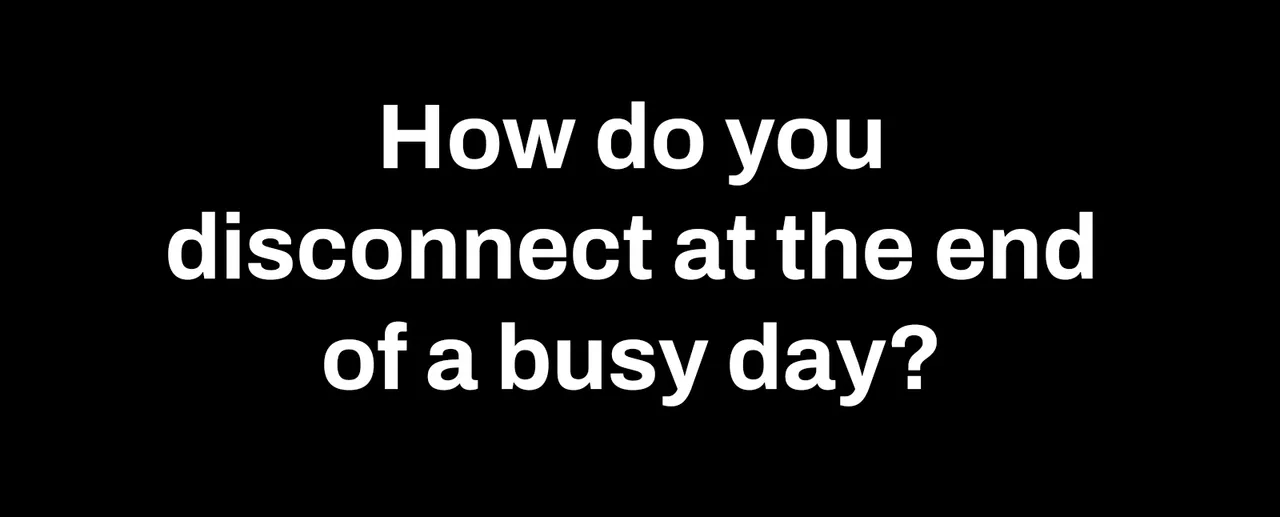
I really try, especially on school nights, to end my day at a reasonable time. And it's really, really important to me to sort of have a nice wrap-up to the end of my day because it puts me in the right mindset. It's like having a ritual. I think these rituals help us to shift into whatever phase we're going to do, and when I'm done with my day, I'm going to shift into a restful phase. I have sort of the same routines: I love a hot cup of tea or fennel water because I'm a big gut health person too.
I try to get rid of screens at a certain point and read a book, which also really helps me disconnect. It's like a signal to my brain, like, "Okay, you're done with thinking about all of the job stuff," or whatever else is going on. I can just shift my mind to a different place.
Before I go to sleep, I always do three dimensional breaths—like big diaphragmatic breaths—and I think it helps to really shift my whole body and my nervous system into more of a state of "rest and digest" and out of the "active and doing stuff" part of life.
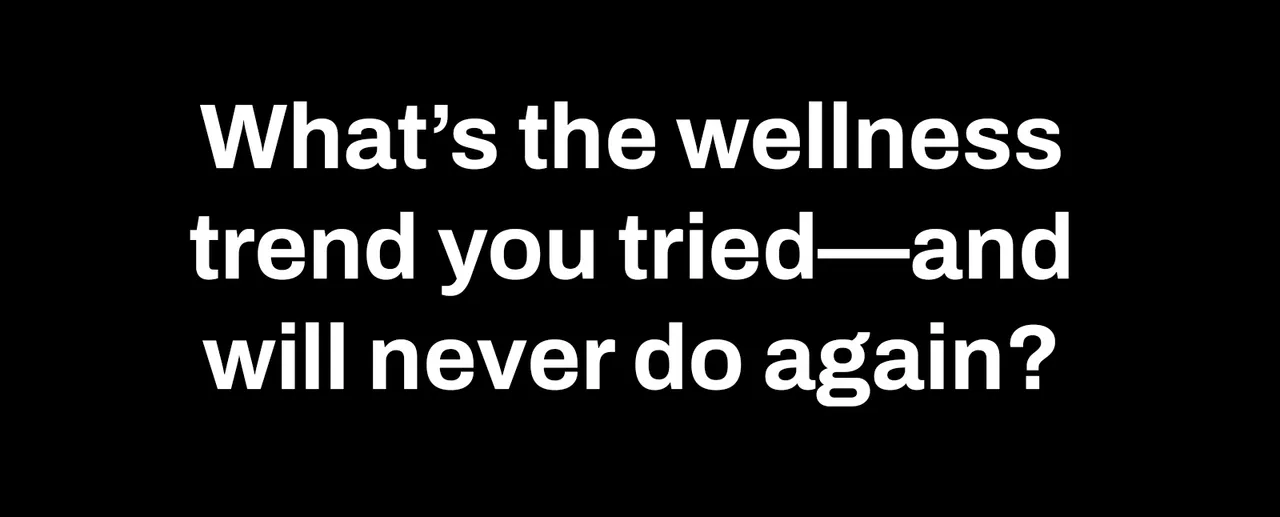
I remember when juice cleanses were a thing. Do you remember when it was like everywhere all the time? I think I tried it once for like a few days, I don't even remember, and it was so hard for me. I'm not an expert on the nutrition of a juice cleanse, but for me, I really need other things in my diet than what I was getting out of just a juice cleanse. I'm a person that's also movement-oriented. I'm going to work and moving in my body every day, and I'm not convinced that that's necessarily good for me to do if I'm not getting enough calories.
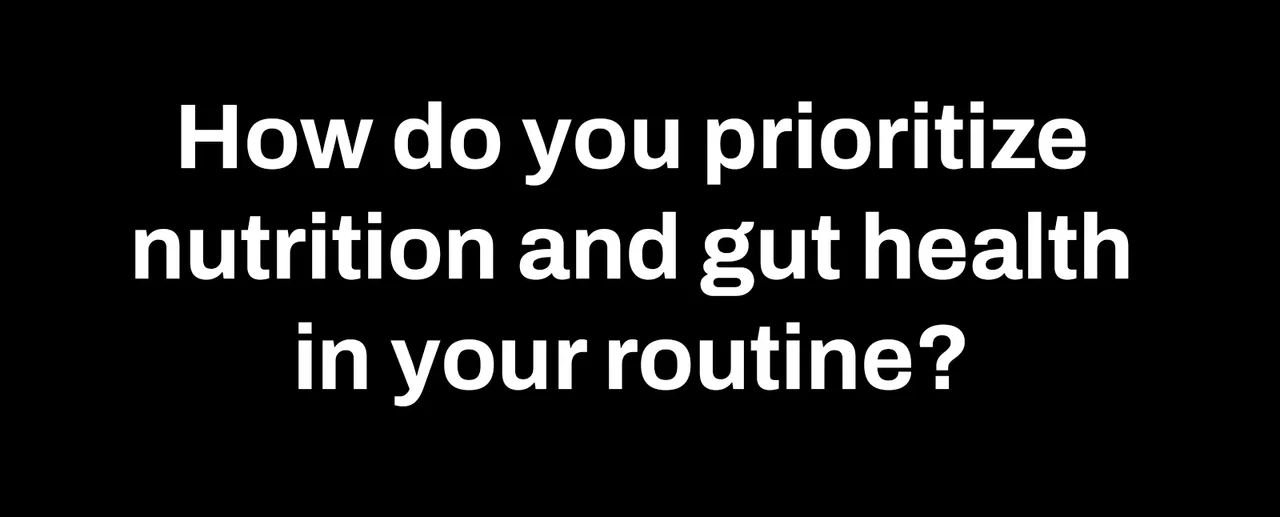
I think it's important that, instead of jumping onto a trend of taking certain supplements, to get your own blood testing done and see what you actually need to fill in any nutritional gaps. For example, there are certain supplements I need to take because I'm a vegetarian. I need to take a B complex. I take an iron supplement, because again, I don't eat meat. I also take a protein supplement. I really just like to make sure that I'm personalizing whatever I'm putting into my body to what's actually happening in my body.
Beyond that, it's kind of just the normal stuff: eating a variety of food, making sure I get adequate fiber, adequate hydration, natural but also potentially supplemental probiotic foods. I try to make sure that I finish eating a few hours before bed. I think that makes a really big difference, not only in the way that I sleep, but the way that I feel in the morning.
I always take a walk after dinner, and I think that's a nice way to wind down and it's good for your gut health and digestion. I also think one of the easiest things that anyone can do that I try to do is cooking at home more because you know exactly what's going into your food, and you can really prioritize getting ingredients in that maybe you're not getting other places in your diet.
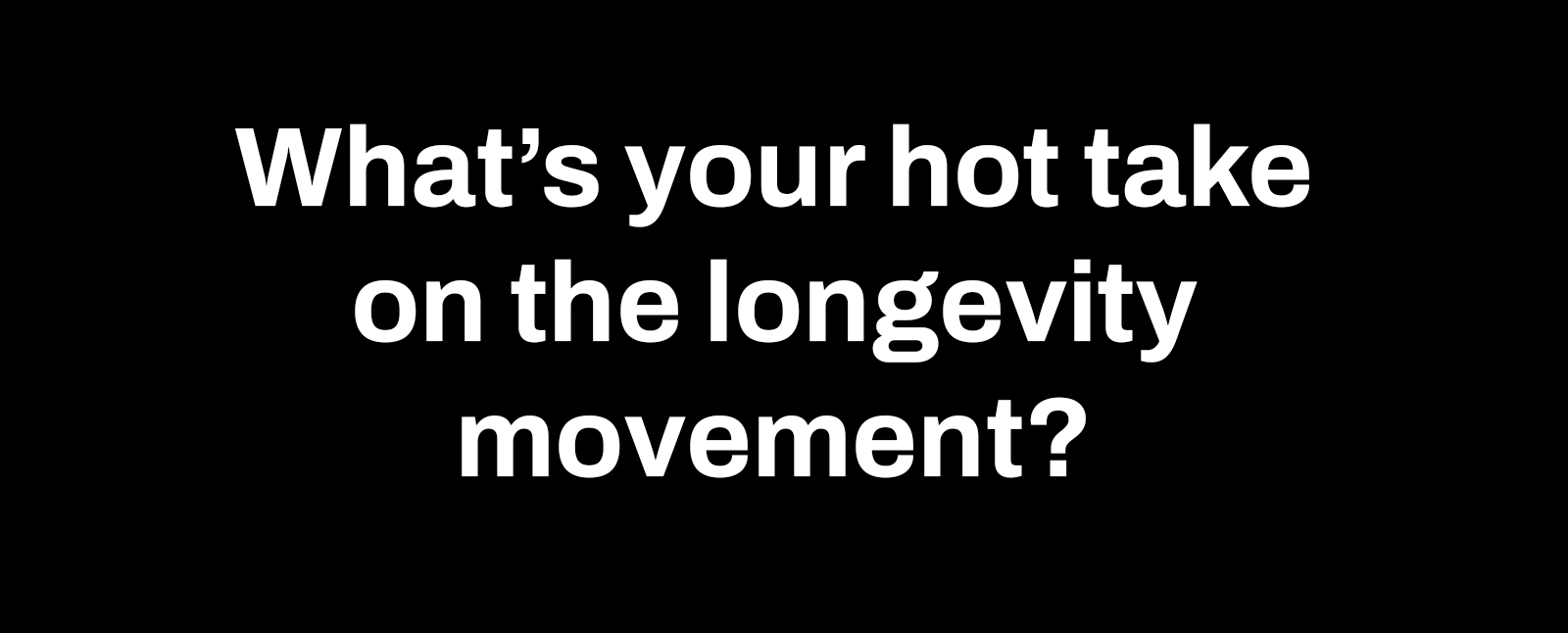
In principle, I think it's a really great idea because, of course, our lifespans are increasing, so we should be thinking about how to make our years—especially our later years—healthy as well. But at the same time, the real keys to longevity are just starting by nailing the basics: nutrition, hydration, sleep, movement, strength and cardio, healthy relationships, mental health. I really think it's important for us to look at our metabolic health, our cardiovascular health, and our inflammation. I think because longevity is... trending, there are a lot of higher level interventions that people are paying attention to more than the basics, which to me feels kind of silly. There's no amount of red light therapy or intermittent fasting or cold plunging that's going to move the needle if you're not doing these things first.
My physical therapist has a funny way of explaining it: he says it's like jumping over a hundred dollar bill to pick up a dollar—you're missing where you could really make your money.
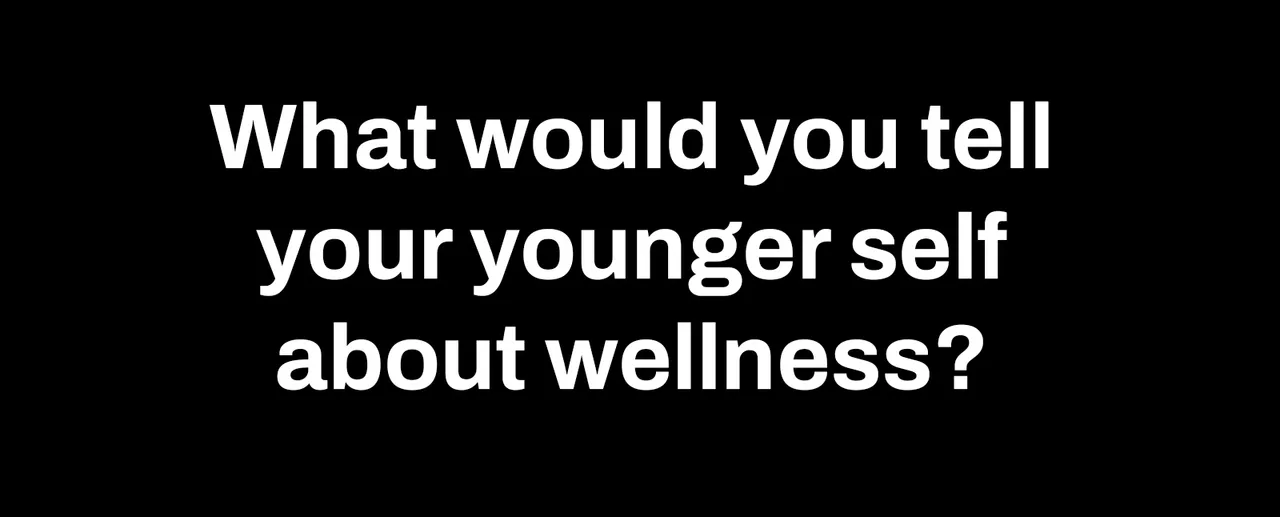
We live in a world where so much of the information that we get, or so much of the influence in our life, is from media and social media and people who we don't know from the inside out. When we see an influencer or somebody that seems aspirational, we don't really know what's going on behind the scenes. And I think it's really important to realize that what people look like or what they're saying on the internet is not a real reflection of their health or wellness or their mental state or anything like that, and that everybody is actually completely unique and nobody is going to have the same body or the same needs. So I would tell my younger self to just be really curious about what actually works for you. Pay attention, be curious, and know that real health starts from the inside out.
Why Trust Marie Claire
For more than 30 years, Marie Claire has been an internationally recognized destination for news, fashion and beauty trends, investigative packages, and more. When it comes to the products Marie Claire recommends, we take your faith in us seriously. Every product that we feature comes personally recommended by a Marie Claire writer or editor, or by an expert we’ve spoken to firsthand.
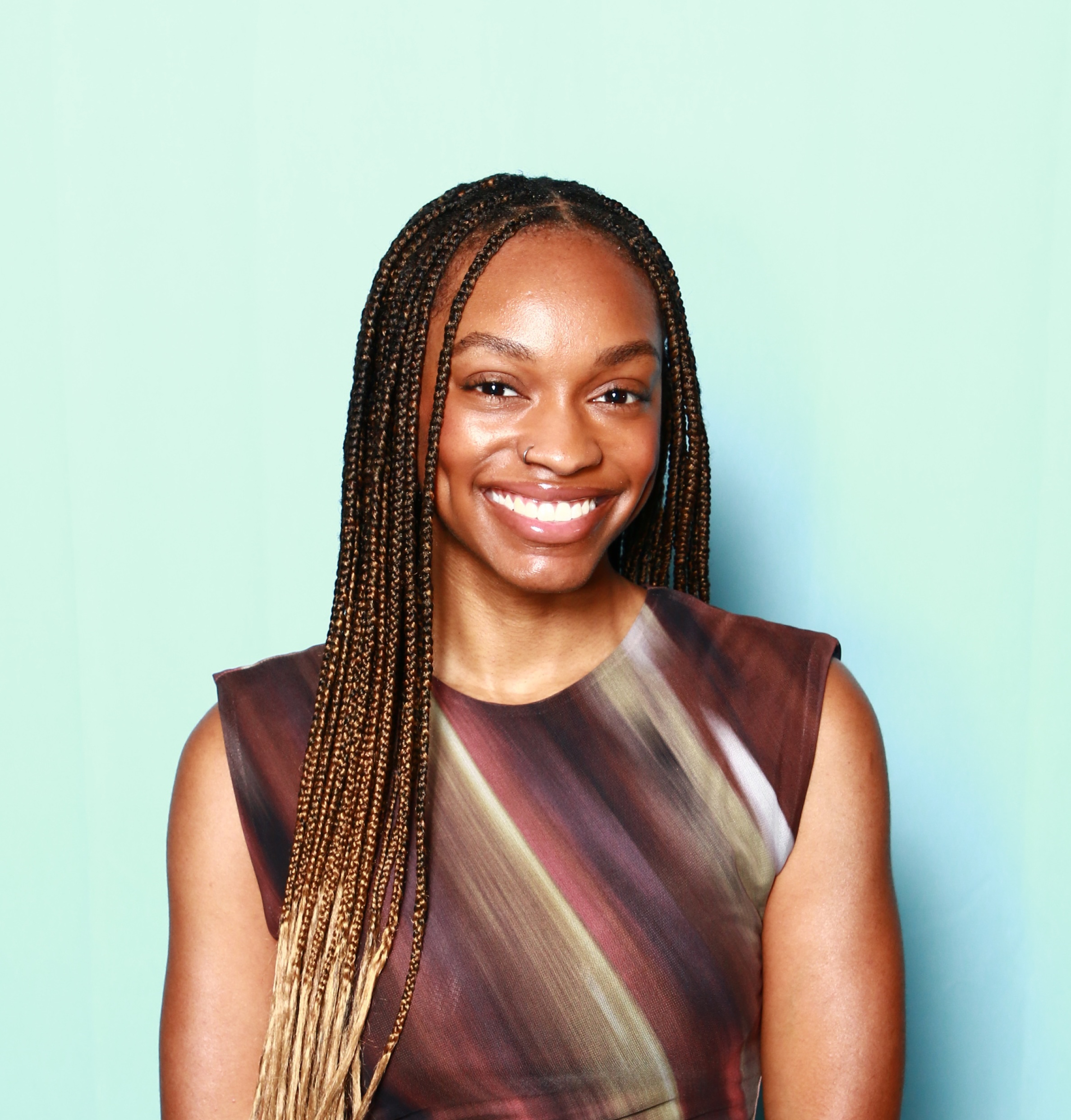
Danielle Jackson is the senior beauty writer at Marie Claire. She has nearly a decade of experience covering beauty, lifestyle, and entertainment and was previously the senior beauty editor at Women's Health, where she thoughtfully covered topics related to skincare, haircare, aesthetics, and wellness. Before that, she spent three years as an assistant beauty editor at PS, and in the years since, her work has appeared in titles like Vogue, InStyle, Glamour, and more. Danielle graduated from the University of Georgia with a BA in English, and has lived in Brooklyn for almost ten years. When she's not writing, you can find her reading romance novels and talking about sunscreen. You can find her on Instagram @danielleknecole.